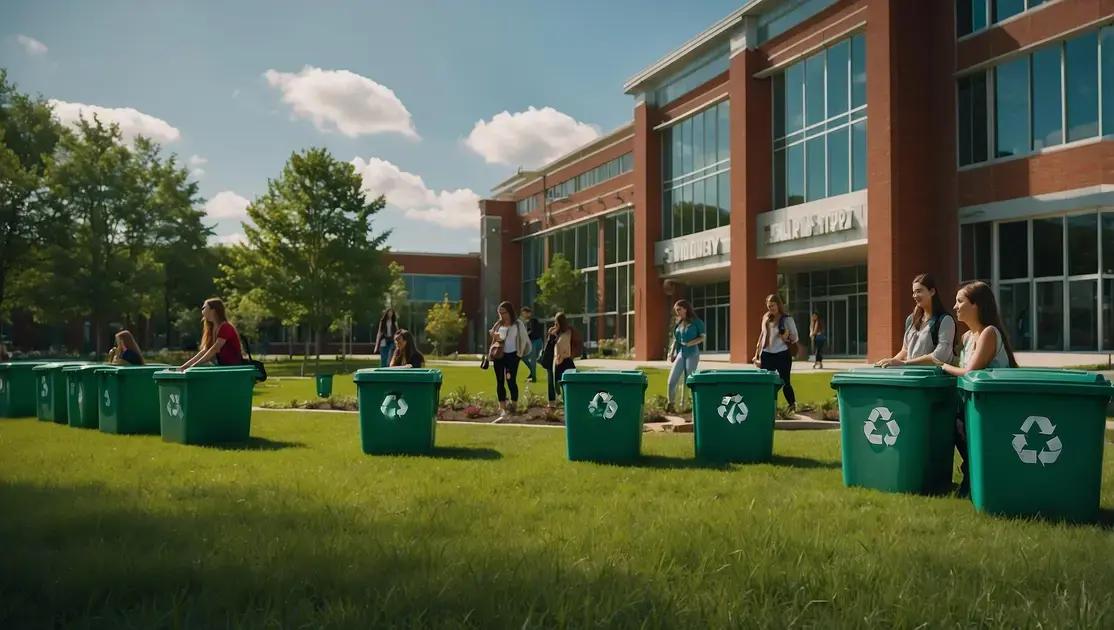But when I studied abroad, I did a 180. I took the minimum. I had the cushiest schedule ever and only had class Tuesday – Thursday. Looking back, this allowed me to get the most out of my experience. And because my classes were in the second language I was learning, even the minimum 12 credit hours required a lot more time than what I was used to back home. Starting with small changes, like reducing single-use plastics in your daily routine or researching your host university’s sustainability initiatives, could be the key step. If you’re curious about eco-friendly study options, check out sustainable study abroad programs or look into guides such as the complete study abroad guide for aspiring students. Maybe your time abroad can truly make a difference beyond just your own journey.

But when I studied abroad, I did a 180. I took the minimum. I had the cushiest schedule ever and only had class Tuesday – Thursday. Looking back, this allowed me to get the most out of my experience. And because my classes were in the second language I was learning, even the minimum 12 credit hours required a lot more time than what I was used to back home. Starting with small changes, like reducing single-use plastics in your daily routine or researching your host university’s sustainability initiatives, could be the key step. If you’re curious about eco-friendly study options, check out sustainable study abroad programs or look into guides such as the complete study abroad guide for aspiring students. Maybe your time abroad can truly make a difference beyond just your own journey.
Why Zero-Waste Study Programs Are the Future of Education Abroad
The Zero-Waste Study Programs Advantage
Not enough material in the dataset.
Top 5 Countries Leading the Way in Zero-Waste Study Programs
Global Leaders in Zero-Waste Study Programs
Not enough material in the dataset.
How to Choose the Best Zero-Waste Study Program for You
Evaluating Zero-Waste Study Programs
Not enough material in the dataset.
Start Your Eco-Friendly Educational Adventure Today!
Discover the Power of Zero-Waste Study Programs
Document your experience. Studying abroad is one of the most magical and life-changing experiences. To savor the memories for later, document as much as you can. People always say to “live in the moment” and often assume that means no photos or videos. But that is not true! You can do what you want to document your experience. Photos, videos, blogging, and keeping a travel journal are all common ways to do so.
Alternatives to Traditio-nal Study Abroad Pathways
For many students, the idea of studying abroad through a traditional program may not be feasible due to time, financial constraints, or other personal circumstances. However, there are alternative pathways that still provide international exposure and academic advancement.
- Network optimization. Alongside being correlated with or conducive to the desirable qualities listed above, studying abroad gives students the opportunity to develop their network of contacts beyond national borders. With friendships forged during this period likely to be meaningful in nature, these connections may prove fruitful in terms of career development.
- Make friends outside the box. Most international study abroad programs make it easy for students to meet and befriend other international students.
Looking for tailored support on zero-waste study programs, credit transfer, or student housing? Explore our in-depth guides: Complete Study Abroad Guide, Student Housing Abroad, and Credit Transfer Abroad. Whether you are considering an eco-focused program or searching for the right scholarship, get started today and join the next wave of global changemakers with zero-waste study programs!
Conclusion
Exploring the possibilities of zero-waste study abroad illuminates just how much impact our individual choices can have—both on our education and on the planet. The idea that your academic journey can also be a catalyst for environmental change isn’t just exhilarating—it’s empowering. The innovative programs and sustainable campuses highlighted show that eco-conscious travel is no longer a dream but a growing reality.
It’s natural to feel a little uncertain about where to begin, but sometimes the smallest steps lead to the most meaningful change. Maybe this is your moment to research a program, ask how your intended university handles sustainability, or just start imagining yourself as part of this movement. Remember, you don’t have to be perfect to be part of the solution. Your curiosity and choices matter—and you might just find that living and learning with intention is the most rewarding adventure of all.
Frequently asked questions — straight to the point
What are zero-waste study programs?
Zero-waste study programs focus on minimizing waste during your educational experience abroad. They often emphasize sustainable practices, recycling, and environmentally-friendly living while studying in another country.
How can I make my study abroad experience zero-waste?
Start with small changes, like reducing single-use plastics in your daily routine or researching your host university’s sustainability initiatives. Every little effort counts towards achieving a zero-waste lifestyle while abroad!
Are there scholarships available for zero-waste study programs?
Yes! Many organizations and universities offer scholarships specifically for eco-conscious students pursuing zero-waste or sustainable study programs. Research options early to increase your chances.
What should I look for in a zero-waste study program?
Evaluate the program’s sustainability practices, community engagement, and the support they offer for reducing your ecological footprint. Talk to past students for insights into their experiences.
Can I document my zero-waste journey while studying abroad?
Absolutely! Documenting your experience through photos, blogs, or journals can not only help you cherish your memories but also inspire others to consider their own eco-friendly journeys.